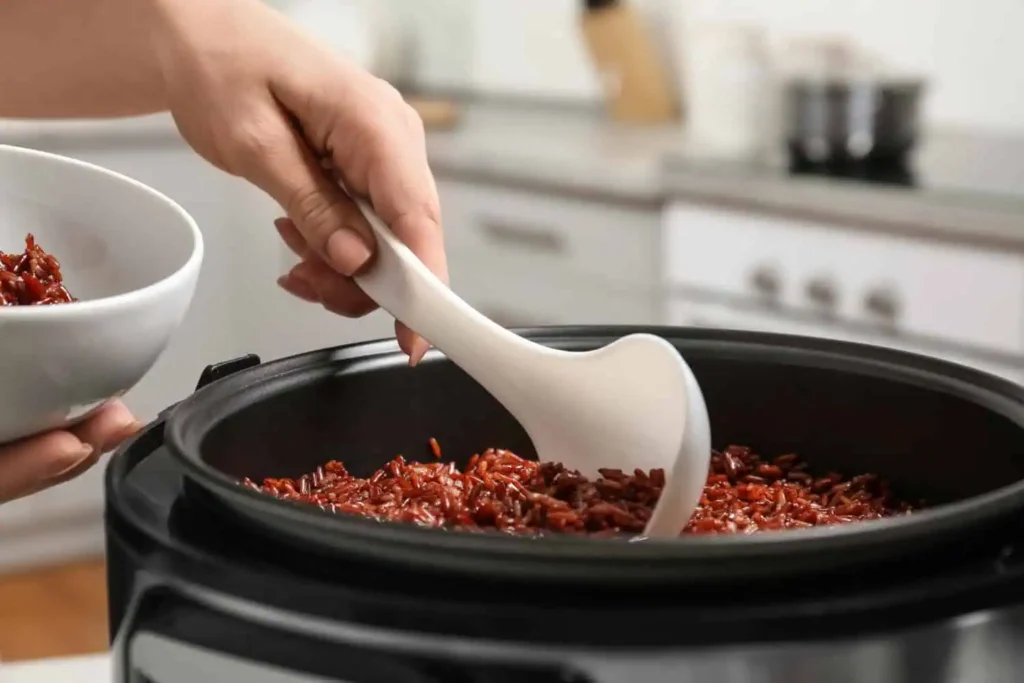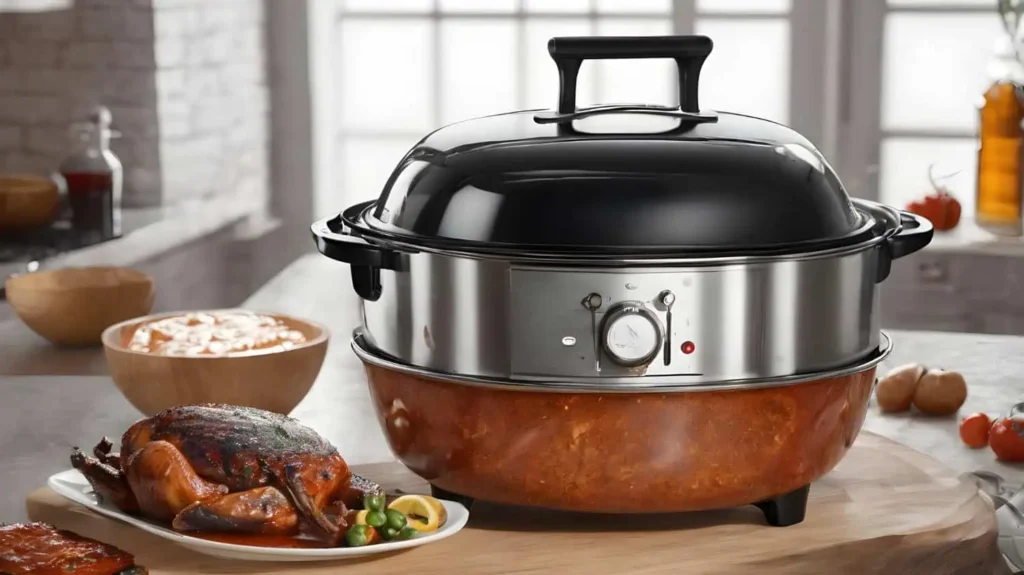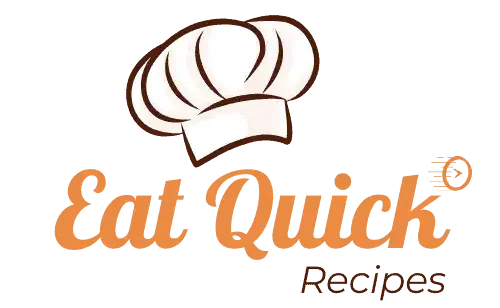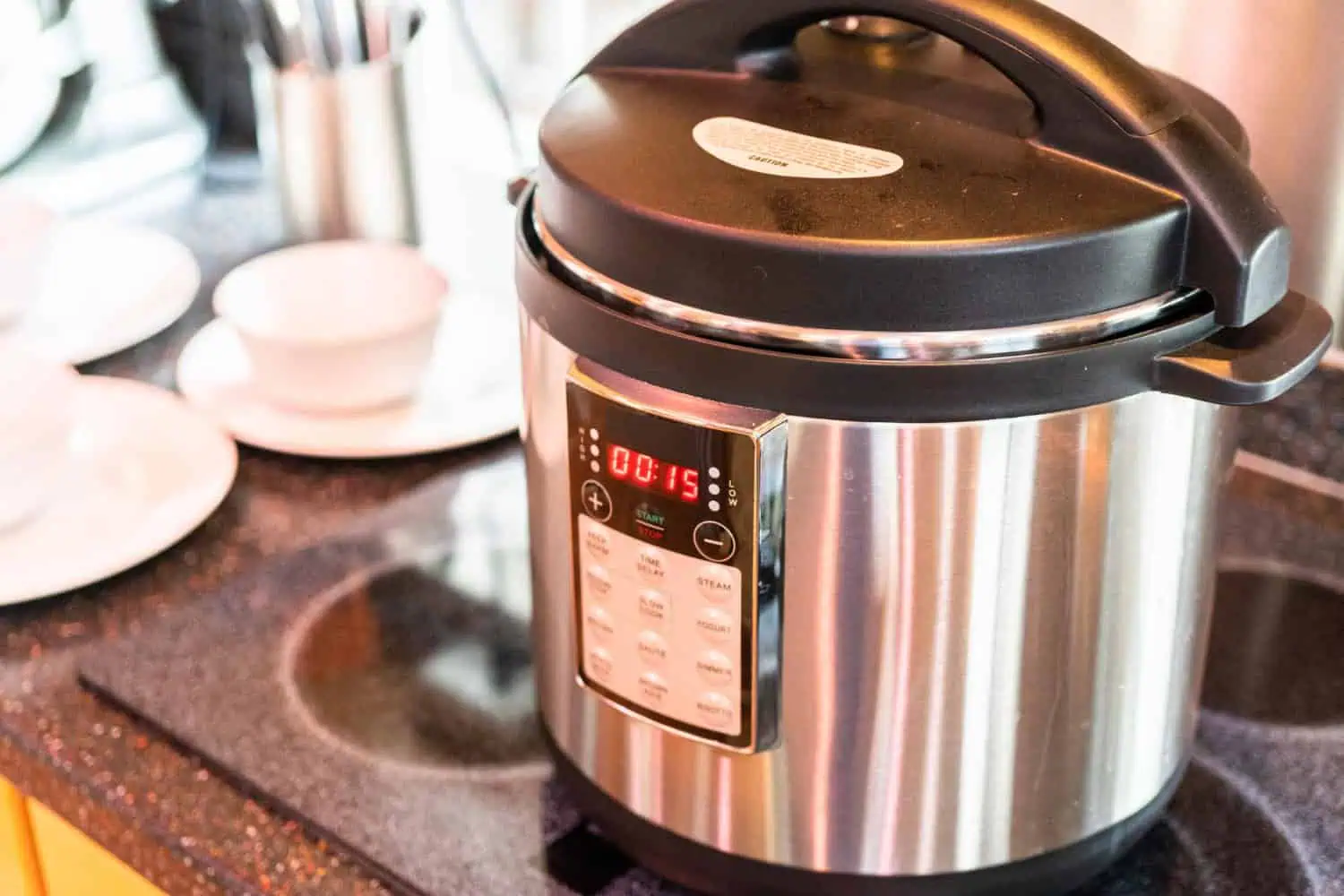Soup is one of the most comforting, versatile, and budget-friendly meals you can make. Whether you’re preparing a hearty beef stew, a creamy potato soup, or a simple vegetable broth, it’s a go-to dish for families, meal preppers, and anyone looking for a cost-effective option. But when it comes to cooking methods, many people wonder: Is it cheaper to make soup in a slow cooker compared to other methods like a stovetop or oven?
In this detailed guide, we’ll explore the costs, energy efficiency, and benefits of using a slow cooker for soup. We’ll also provide tips for maximizing savings, common mistakes to avoid, and answers to frequently asked questions. By the end, you’ll have all the information you need to decide if slow cooking is the most economical and practical choice for your kitchen.
Why Use a Slow Cooker for Soup?
Slow cookers, also known as crockpots, are a popular kitchen appliance for their convenience and ability to cook food at low temperatures over long periods. But beyond their ease of use, they’re also known for being energy-efficient and cost-effective. Let’s take a closer look at why slow cookers are ideal for soup-making.
How Does a Slow Cooker Work?
A slow cooker uses a heating element to maintain a consistent low temperature, typically between 170°F and 280°F (77°C to 138°C). This slow, steady heat allows ingredients to cook evenly without burning or drying out. The result? Tender meats, flavorful broths, and perfectly cooked vegetables—all with minimal effort.
Benefits of Using a Slow Cooker for Soup
- Hands-Off Cooking: Once you add your ingredients, you can set it and forget it. There’s no need to stir or monitor the pot constantly.
- Energy Efficiency: Slow cookers use significantly less electricity than ovens or stovetops, making them a cost-effective choice for long cooking times.
- Flavor Development: The slow cooking process allows flavors to meld together, resulting in rich, delicious soups.
- Versatility: You can make a wide variety of soups, stews, and broths in a slow cooker, from creamy chowders to hearty chili.
- Batch Cooking: Slow cookers are perfect for making large quantities of soup, which can be stored for later use, saving both time and money.
Is It Cheaper to Make Soup in a Slow Cooker? Breaking Down the Costs
To determine if making soup in a slow cooker is cheaper, we need to consider two main factors: energy consumption and ingredient costs.
1. Energy Consumption: Slow Cooker vs. Stovetop vs. Oven
One of the biggest advantages of a slow cooker is its energy efficiency. Here’s how it compares to other cooking methods:
- Slow Cooker: A typical slow cooker uses between 150 and 300 watts of electricity per hour. For an 8-hour cooking session, this amounts to about 1.2 to 2.4 kWh of energy, costing approximately $0.15 to $0.30 (depending on your local electricity rates).
- Electric Stovetop: An electric stovetop uses around 2,000 watts per hour. Cooking soup for 1 hour on the stovetop would consume 2 kWh, costing about $0.25 to $0.35.
- Gas Stovetop: A gas stove uses about 0.35 therms per hour. At an average cost of $1.20 per therm, cooking soup for 1 hour would cost around $0.42.
- Oven: An oven uses approximately 2,000 to 5,000 watts per hour. Cooking soup in an oven for 2 hours could cost $0.50 to $1.00, depending on the wattage and cooking time.
Conclusion: While a stovetop or oven may cook soup faster, a slow cooker uses significantly less energy over time, making it the cheaper option for recipes that require long cooking times.
2. Ingredient Costs: Why Slow Cookers Save You Money
Another reason making soup in a slow cooker is cost-effective is its ability to maximize the value of your ingredients. Here’s how:
- Cheaper Cuts of Meat: Slow cookers are perfect for tough, inexpensive cuts of meat like chuck roast, pork shoulder, or chicken thighs. The low-and-slow cooking process breaks down connective tissues, resulting in tender, flavorful meat.
- Use of Leftovers: Slow cookers are great for repurposing leftovers or using up vegetables that are slightly past their prime.
- Better Flavor Extraction: Slow cooking allows you to extract maximum flavor from bones, herbs, and spices, reducing the need for expensive seasonings or pre-made broths.
- Batch Cooking: Slow cookers are ideal for making large batches of soup, which can be portioned and frozen for future meals. This reduces food waste and saves money in the long run.
The Hidden Savings of Slow Cooker Soup Making
While the direct costs of energy and ingredients are important, there are also indirect savings to consider when making soup in a slow cooker:
1. Time Savings
Slow cookers require minimal hands-on time. Once you’ve added your ingredients, you can set it and forget it. This frees up your time for other tasks, reducing the temptation to order takeout or rely on convenience foods.
2. Reduced Food Waste
By using a slow cooker, you can make the most of ingredients that might otherwise go to waste. For example:
- Wilted vegetables can be turned into a flavorful broth.
- Leftover chicken bones can be used to make stock.
- Small amounts of rice, pasta, or beans can be added to bulk up your soup.
3. Fewer Dishes to Wash
Since everything cooks in one pot, you’ll spend less time washing dishes. This not only saves water but also reduces the effort involved in meal prep and cleanup.

Tips for Making Soup in a Slow Cooker on a Budget
To maximize your savings when making soup in a slow cooker, follow these tips:
1. Choose Budget-Friendly Ingredients
- Vegetables: Opt for seasonal produce, which is often cheaper and more flavorful.
- Proteins: Use affordable options like beans, lentils, or chicken thighs.
- Broth: Make your own stock using vegetable scraps or leftover bones.
2. Cook in Bulk
- Double or triple your soup recipes to make the most of your slow cooker’s capacity.
- Freeze leftovers in individual portions for quick, budget-friendly meals.
3. Use Energy-Efficient Practices
- Avoid lifting the lid during cooking, as this releases heat and increases cooking time.
- Cook on the low setting whenever possible, as it uses less energy than the high setting.
- Plan your cooking for off-peak electricity hours to save on energy costs.
Common Mistakes to Avoid When Making Soup in a Slow Cooker
While making soup in a slow cooker is generally straightforward, there are a few common mistakes that can increase costs or reduce the quality of your soup:
- Overfilling or Underfilling the Pot: For optimal cooking, your slow cooker should be filled at least halfway but no more than two-thirds full.
- Using Expensive Ingredients: Stick to budget-friendly staples and avoid costly specialty items.
- Opening the Lid Too Often: Each time you lift the lid, heat escapes, and the cooking time increases.
- Cooking Small Portions: Slow cookers are most efficient when used for large batches. Cooking small amounts wastes energy.
Cost Comparison: Slow Cooker Soup vs. Other Cooking Methods
To illustrate the cost savings of making soup in a slow cooker, let’s compare the total cost of preparing a basic vegetable soup using different methods.
Ingredients for 8 Servings of Vegetable Soup:
- Vegetables: $5
- Stock: $2
- Seasonings: $1
Energy Costs:
- Slow Cooker: $0.25 (8 hours on low)
- Electric Stovetop: $0.30 (1 hour)
- Gas Stovetop: $0.42 (1 hour)
- Oven: $0.75 (2 hours)
Total Cost Per Serving:
- Slow Cooker: $1.03
- Electric Stovetop: $1.08
- Gas Stovetop: $1.11
- Oven: $1.22
Conclusion: While the difference may seem small for a single batch, the savings add up over time, especially if you use your slow cooker regularly.
Environmental Benefits of Slow Cooker Soup Making
In addition to saving money, making soup in a slow cooker is also better for the environment. Here’s why:
- Lower Energy Consumption: Slow cookers use less electricity than ovens or stovetops, reducing your carbon footprint.
- Reduced Food Waste: By repurposing leftovers and using up scraps, you’ll send less food to the landfill.
- Minimal Heat Loss: Slow cookers are well-insulated, so they don’t heat up your kitchen like an oven or stovetop.

FAQs: Is It Cheaper to Make Soup in a Slow Cooker?
1. Is it cheaper to use a slow cooker or a stove?
Yes, making soup in a slow cooker is generally cheaper than using a stove, especially for recipes that require long cooking times. Slow cookers use less energy and allow you to cook in bulk, which reduces overall costs.
2. How much does it cost to run a slow cooker for 8 hours?
Running a slow cooker for 8 hours costs approximately $0.15 to $0.30, depending on your local electricity rates. This is significantly cheaper than using an oven or stovetop for the same amount of time.
3. Can I save money by making my own soup?
Absolutely! Homemade soup is much cheaper than store-bought or restaurant options. By using a slow cooker, you can further reduce costs by cooking in bulk and using affordable ingredients.
4. What are the best soups to make in a slow cooker?
Some budget-friendly soups that work well in a slow cooker include:
- Lentil soup
- Split pea soup
- Chicken noodle soup
- Vegetable soup
- Beef stew
5. Is it worth buying a slow cooker to save money?
Yes, investing in a slow cooker can save you money in the long run. The initial cost of the appliance is quickly offset by lower energy bills, reduced food waste, and the ability to cook affordable, homemade meals.
Final Thoughts: Is It Cheaper to Make Soup in a Slow Cooker?
After analyzing energy costs, ingredient savings, and indirect benefits, it’s clear that making soup in a slow cooker is a cost-effective choice for most households. Not only does it save money on electricity, but it also allows you to use budget-friendly ingredients and cook in bulk, reducing food waste and meal prep time.
If you’re looking for a convenient, economical way to prepare delicious homemade meals, a slow cooker is a worthwhile investment. By following the tips and strategies outlined in this guide, you can enjoy hearty, flavorful soups without breaking the bank.
So, the next time you’re wondering, “Is it cheaper to make soup in a slow cooker?”, the answer is a resounding yes!

